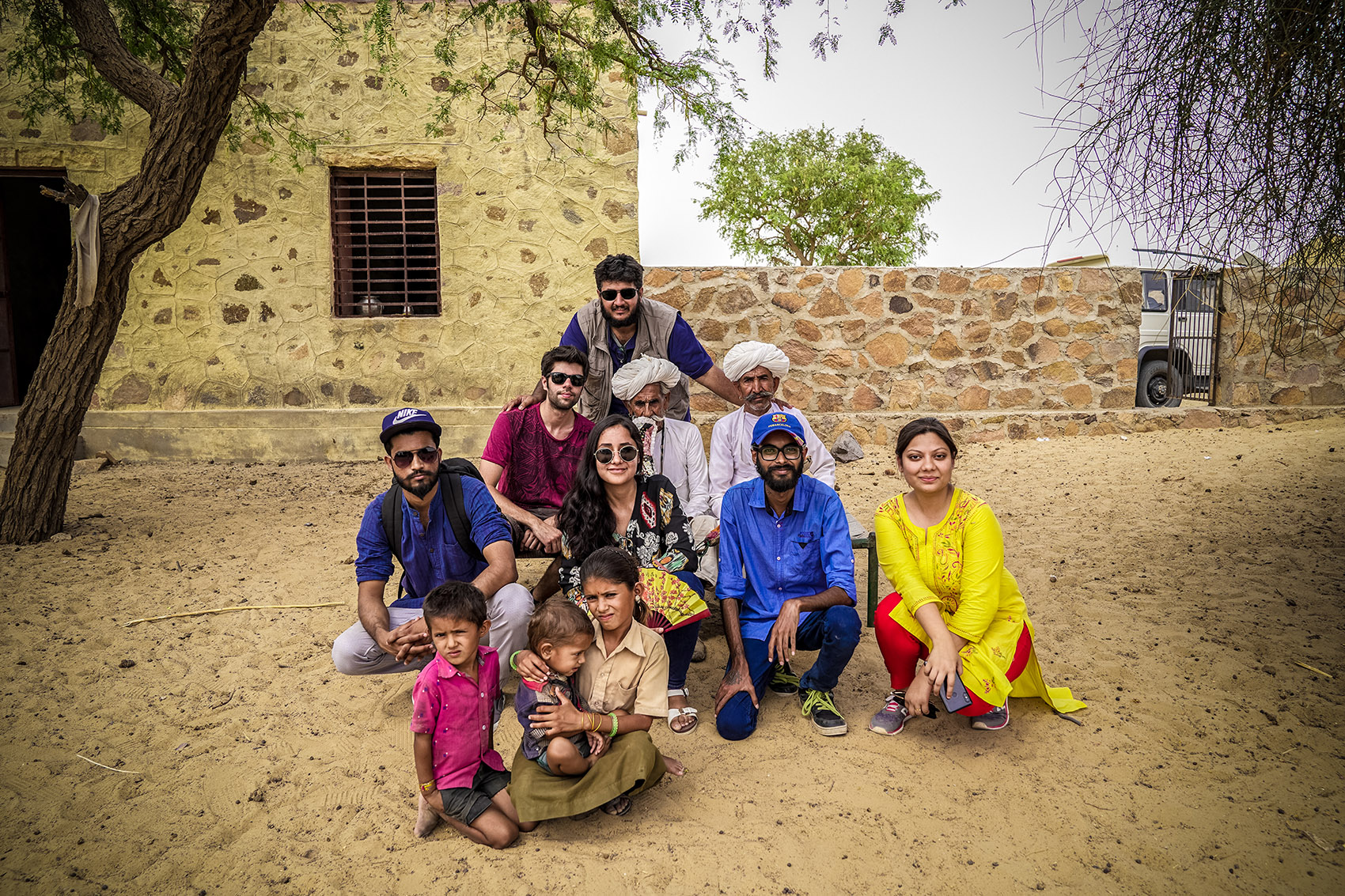
INSTRUMENTAL EUPHORIA: SOLITUDE OF THE RHYTHMS OF PAAVA
In our quest to explore the folk melodies of Rajasthan, we were overwhelmed to discover the hidden gems from a variety of communities, with each group exhibiting a unique flair in the realm of folk music. This venture took us a grinding twenty miles away from Barmer, to a remote village called Bishala. Fortunately, Lord Indra was kind enough that day, and we were welcomed with grey clouds and a cool breeze in the midst of the desert. Parched hills surrounding us on one side, and on the other, sheep grazing dry grass which seemed like green spots on a brown canvas. What a sight it was! In the middle of this aesthetic frame sat a 85-year-old man on a string cot, his eyes sparkling with fulfilment as he looked at his beloved instrument paava.
It was remarkable to see Punma Ram play paava with such ease since usually, a man his age surrenders to the inevitable loss of youth, but Punma Ram, looking so peaceful, made us all bounce along with his transitions in breaths seeming no less than that of a roller coaster. Listening to the tunes of his paava, one is catapulted back in time and can envision Punma Ram as a kid, wandering around with the shepherds and their flock, swinging to the euphonious chimes of paava and rejoicing about the simple gifts of life.
Paava, also referred to as Alghoza, is a pair of wind instruments made of wood. It is widely played by the Punjabi, Sindhi, Kutchi, Rajasthani and Baloch folk musicians. It consists of two inter-joined beak flutes: one for melody, and the second one for drone. A continuous flow of air is required as the player blows into the two flutes simultaneously. The quick grasping of breath on each beat creates a buoyant, swinging rhythm. This wooden instrument initially consisted of two flute pipes of the same length but over time, one of them was shortened for sound purposes. The instrument can be scaled to any tune using beeswax.
Punma Ram was born and brought up in Bishala and was barely 10 years old when he learnt to play paava from the shepherds. When he was a child, the shepherds in his village used to play this instrument while taking the sheep for grazing outside. Punma Ram was deeply influenced by this wind instrument and developed a great deal of interest in it. Gradually, he started mastering the art of playing hit, and now it has been embedded into his subconscious mind. He humbly stated that everytime he holds paava, he is unaware of the music that follows. While some tunes are from the bygone years of his adolescence, some spontaneously come to his mind at the moment.
He carves the wood for making his paava himself, using Sheesham or sometimes Rohida tree. The finishing touch is usually given by a professional who sits in the main village. Punma Ram feels that carving one’s own instrument is not an easy thing, it usually takes forty to fifty days to make an unfinished pair of paava. Often, tourists have asked Punma Ram to teach them to play but only a handful of them have patiently stuck to learning it, because of the difficulty encountered in doing so. Punma Ram and Padma Ram have never performed outside Bishala, they only perform in the neighbourhood for marriage occasions or other festivities. The pure and authentic art of paava playing still survives untouched, but the world is unaware of its soothing rhythms.
Punma Ram along with his nephew Padma Ram are the only two paava players left in the region of and around Barmer. This is alarming because none of their descendants has learnt this dying art. Their children have taken up jobs in small sectors and find comfort in their own lives. They have no interest in learning this art, primarily because it is cumbersome to learn, and requires selfless devotion to pursue it.
Punma Ram’s only child is his daughter, who has married off years ago and is settled in a neighbouring village. She seldom visits him. Punma Ram now lives alone in a thatched hut with almost no amenities of any sort. But his priceless art makes his entire settlement rich with soothing harmonious melodies.
